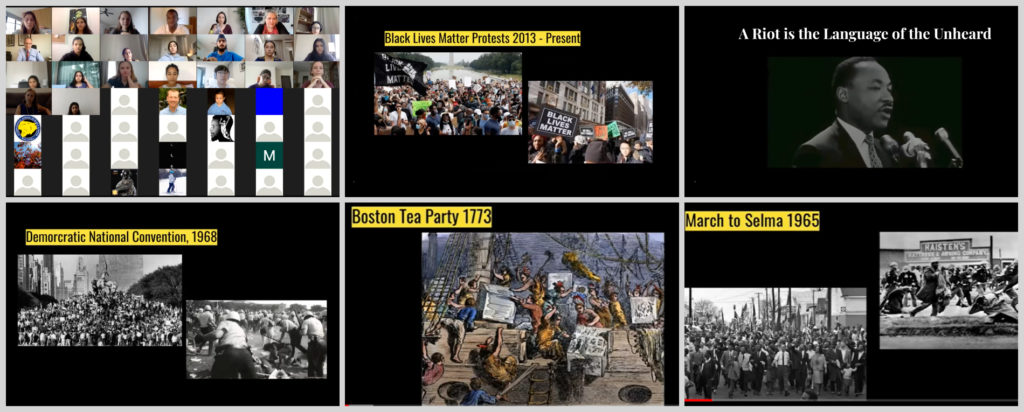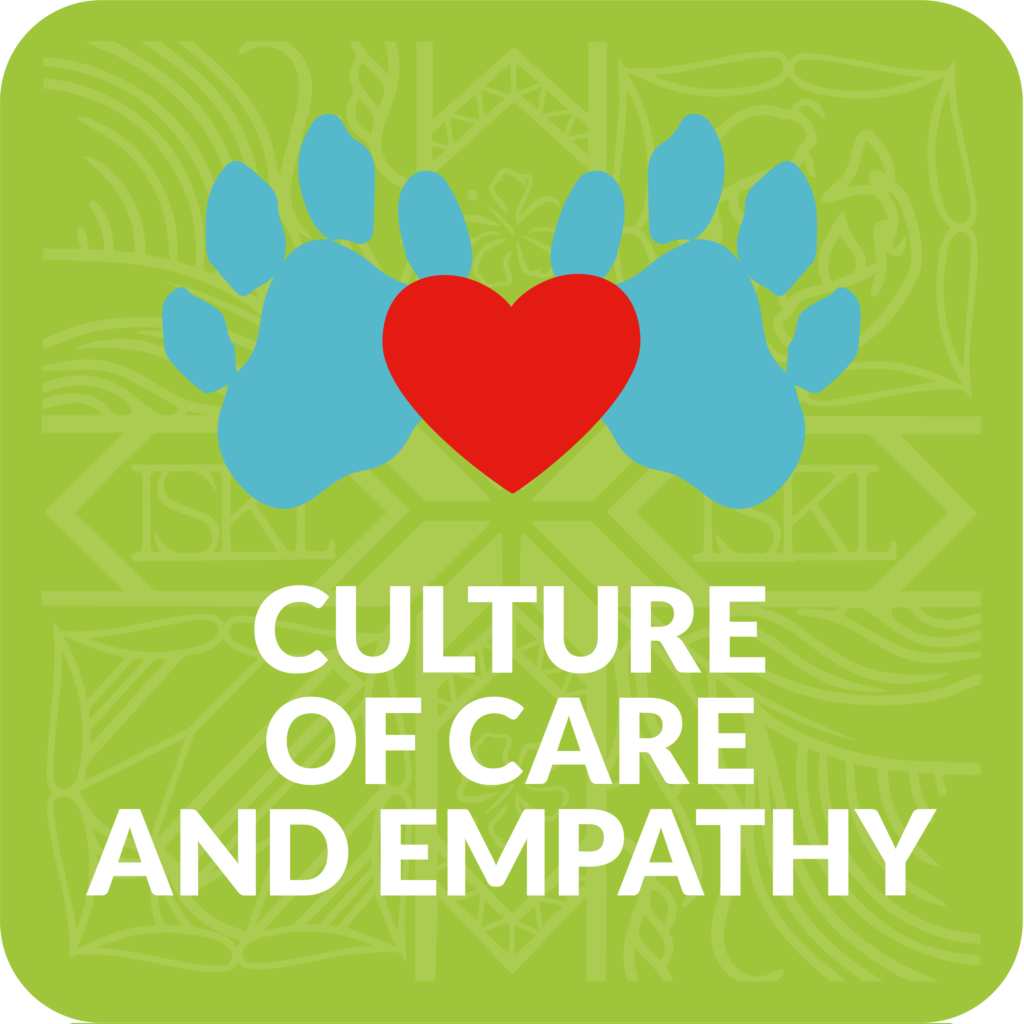High School Students Organize Panel Discussion With Macee Executive Director Curtis Johnson
In conjunction with Black History Month last month, The International School of Kuala Lumpur High School (HS) students held a panel discussion in partnership with the US Embassy on February 23.
Organised by the Student Leadership Team (SLT), Students Against Racism Coalition (SARC) / PeerHelpers (students helping new students) / Pride and PRAXIS 2030, the Zoom session was facilitated by Pia (SARC), Evelynn (SLT) and Klara (Peer Helpers), and open to all HS students and faculty members.

Guest speaker Curtis Johnson, who is the Executive Director of the Malaysian-American Commission on Educational Exchange (MACEE) and an ISKL parent, was invited to talk about “The Revolution Will Not Be Televised: The Long History of Protest in the United States”.
Curtis has an extensive background as a Government Relations and Public Affairs professional with over a decade of experience in the Executive and Legislative branches of the United States government, and served as a presidential appointee in the Obama Administration.
He has crafted policies and procedures for local government as a senior policy analyst for the Maryland National Capital Parks and Planning Commission as well as worked on the state level, serving as a Government Liaison and Transportation Policy Analyst for the Maryland Department of Transportation.
Among his list of accomplishments include supervising governmental relations for the US Department of Transportation along with improving public-private international partnerships through the US Department of State as well as having managed US Embassy’s one-of-a-kind US cultural center in Jakarta, Indonesia.
To get the ball rolling, Curtis gave a brief history of protests in the United States to give a more rounded perspective of current events, starting with the Boston Tea Party in 1773; the events of Tulsa Race Riot in 1921; Bloody Sunday in Selma, Alabama in 1965; and the start of the #BlackLivesMatter movement in 2013; and the latest Capitol Riot that happened on Jan 6 this year.
For want of context, Curtis mentioned Dr Martin Luther King’s speech which he delivered to Stanford students in 1967 entitled ‘The Other America’ which addressed race, poverty and economic issues.
“While King criticised the riots (breaking out all over the country in the 60s), he was clearly talking about the need to understand and not just condemn, and called for an end to the conditions of injustice and impoverishment that created the situation,” he said.
Later, the students were given the opportunity to ask questions about protests and riots, or any other related topic. One of them asked what an insurrection was and for some examples, to which Curtis replied: “The Boston Tea Party can be seen as insurrection. One of the latest forms of protests, the Capitol Riot on Jan 6, was an Insurrection, seen as a forcible attack on the US government and carries a different level of crime. Had they been people of color, the result might have been different. You get different reactions in different circumstances.”
He also talked about there being a difference between a protestor and a rioter. “A protestor operates from a different place of privilege; it is about asking for a sit down with power brokers in a space where you are semi-comfortable. Rioters, however, are angry, sometimes paid, and not necessarily part of a movement,” he explained.
“When you protest about something, it means you are already shaking up the status quo.” While there is no one way to “protest responsibly”, the question to consider is how you can impact change and how do you utilize different platforms to protest, he added.
In response to whether social media tends to “romanticise” protests, Curtis felt that it was a double-edged sword. On one hand, it may paint an unrealistic view of things, but social media has also helped to highlight many important issues which otherwise went unnoticed in the past.
He said that while on the surface, the 1960s civil rights movement did not appear to result in a more just society, it did eventually end up with several important legislation being tabled such as the Civil Rights Act; it also saw African Americans getting full citizenships. Curtis was of the opinion that while there are still many inequities and a long way to go before real change takes place, it is possible to correct this through legislation.
Asked for his advice to student leaders, Curtis said that students today have more access to information than any other generation and as such, have no excuse to say they are not aware of something.
“You are still formulating your thoughts; (what you think) at 16 and when you’re 26 will be very different. You don’t have to agree to everything – be discerning, think critically. If something does not make sense, ask questions!”


 We are grateful to Curtis for having taken the time to share his views with ISKL students and discuss current affairs. Student-led discussions such as this help students gain a wider world view as well as a better understanding and connection towards ISKL’s Vision for Diversity, Equity and Inclusion (DEIJ).
We are grateful to Curtis for having taken the time to share his views with ISKL students and discuss current affairs. Student-led discussions such as this help students gain a wider world view as well as a better understanding and connection towards ISKL’s Vision for Diversity, Equity and Inclusion (DEIJ).

